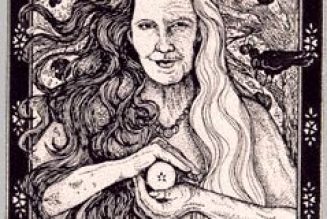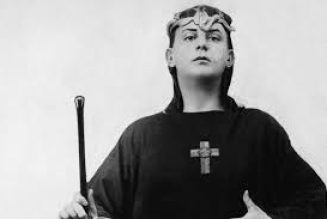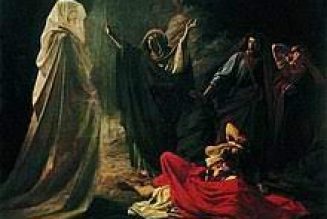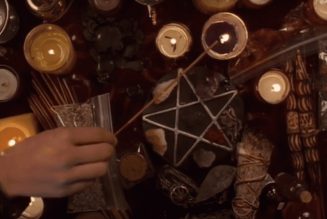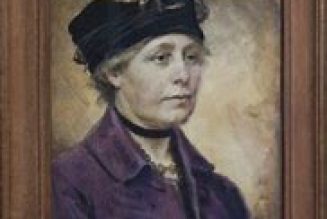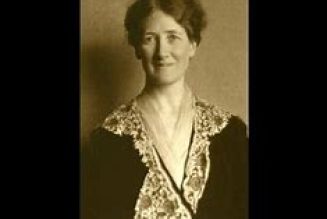There was nothing about the day to suggest it would change the course of his life and influence him until the day he died. It was grey and cheerless, like many other days in Manchester, and Alex was an undersized seven-year-old passing through mean back streets on his way from St George’s Primary School in Hulme to the home of his grandmother.
The Sanders family had recently moved to a semi-detached house-No.2 Stratton Road, Chorlton-a great improvement over the old Victorian house near the central goods yard in Manchester, where mother, father, and three children had had to make do in one room. But living in a better-class district had its drawbacks. The rent was high and Mrs Sanders had taken a charming job to eke out her husband’s wage.
Small-barely five-foot-and wiry, Hannah Sanders was determined to raise her children above their environment. When first married ten years previously she and her husband had been comfortably off. He had been a musician and for five years or so she traveled with him. When their first child Alex was born, he too made the tour of the music halls and theatres. Soon, however, Harold Sanders became increasingly addicted to alcohol, and during an engagement in Argyllshire, he appeared on the stage drunk. He was instantly dismissed. His reputation preceded him never again to work in the theatre. He became a hod-carrier and the family rented the terraced house in Grape Street, Manchester, until they had saved enough to move to Chorlton.
Now it was one long struggle to keep heads above water. Harold took private pupils for lessons on the comet and sometimes worked for prize brass or silver bands at week-ends. But frequently he took refuge in drink, distressing his wife and terrifying his children.
Hannah reassured them about their father’s ‘illness. She regaled them with stories of their paternal great-grandfather who had been captain of a tea clipper. (She never mentioned that he had been captured by Chinese pirates and buried alive.) She cleaned for a tailor in Chorlton who had a son the same size as Alex, and once every six months she agreed to forgo her wages of 3S. 6d. a week in return for a parcel of clothes outgrown by the tailor’s son. The family lived on bread and dripping those weeks, but Alex was warmly shod and well dressed for another half-year.
His Grandma Bibby had moved from her birthplace, Bethesda in North Wales, to be near her daughter. Widowed for many years, she was now sixty-six and had dark hair which, she boasted, she could sit on. As a girl, she had been in service with Lord Penrhyn and had learned to be an excellent cook. Alex enjoyed visiting her for that reason, but she was still very much a stranger, having moved to the district only
months before.
On this particular day Alex was tired and, hungry, and feeling a little sorry for himself. Why could his mother not be like other mothers and be at home waiting for him? He resented being sent to Gran’s to ask if she would give him his tea. Usually, his mother finished work soon after three, but today she was working late.
No. 46 Wilton Road was a terraced family house with an alley separating it from its neighbor at ground level. Instead of ringing the front door bell, Alex went round to the back to surprise Prince the collie, who lived in the yard and was always ready for a rough-and-tumble. Today the yard door was open and the dog. was not there. Gran always preferred people, even relatives, to knock, but the small boy forgot
this and walked right in through the back door.
The sight that met his eyes in the kitchen dumbfounded him. An old, Woman, with wrinkled belly and match-stick thighs stood in the center of the room surrounded by a cloth circle on which curious objects had been placed. Only when she spoke did he recognize his grandmother.
‘What are you doing here?’ she snapped. ‘Who sent you?’
Unable to tear his eyes away, the boy stammered his mother’s message.
‘I’ll give you your tea, all right,’ his grandmother said grimly. ‘But first, come over here.’
‘Take off your clothes,’ she commanded, and when he hesitated after removing his coat and shoes, added, ‘All of them-s-every last stitch.
Teeth chattering with fright, he peeled off his vest and pants and stood there like a lamb about to be slaughtered. The old lady bent down and picked up a small sickle-shaped knife from the edge of the circle surrounding her.
I’m going to make sure that you never tell another living soul what you have seen this day,’ she whispered. ‘If you so much as breathe one word of it, I’ll kill you.’
‘I won’t, Gran, honest I won’t,’ cried the boy, cowering before her.
‘Bend over,’ she said and forced his shoulders towards his knees. There was a searing pain and the boy felt blood trickle down from his scrotum.
‘You can stand up now.’ She let go of him and dried the blood from the knife. ‘You’re one of us now, and all the power of heaven and earth will strike you if you break your promise”.
“Don’t look so scared, lad,”
she realized suddenly that he was white and shaking.
‘you’ll live to thank me for this. I’ll teach you things you never heard of, how to make magic and see the future.’
Instead of being comforted, Alex was even more terrified.
‘You’re not a … witch?’ he whispered, remembering fairy tales about old hags who could turn children into toads.
‘Of course I’m a witch, and so are you now.’
She handed him his clothes and, while they both dressed, told him how, through the ages, witches had been feared, slandered and burnt at the stake. She spoke of the power of healing learned by the witches, and of the stupendous ignorance of non-believers who preferred to suffer rather than be cured by a witch.
‘You, too, maybe persecuted,’ she warned, ‘which is why you must work in secret, as I have done ever since my grandmother taught the magic to me as a child.’
She sat him in her best armchair beside the black lead grate while she cleared away the circle with its strange designs and started making the tea. Alex looked cautiously around the large well-furnished kitchen. Over the mantelpiece was draped a red chenille cloth fringed with tiny bobbles and there were others on the deal Welsh dresser and the tea table. Now that the circle had been removed together with the brass bowls and other strange objects, there was nothing to show that this was not an ordinary kitchen-nothing except the small knife that had cut him and a pair of swords on the dresser.
Gran followed his gaze and went to put the weapons in the bottom cupboard of a chest on the far side of the room. As she opened its door, she demonstrated the elaborate double-lock.
‘It’s a fine piece of furniture,’ she said. ‘My grandfather used to drive the stagecoach from Bangor to London and he had this strong chest specially made to house the silver he had collected.’
Alex knelt beside her as she took from the cupboard a crystal ball and a black-hilted knife.
‘This is my athame,’ she said, showing him the knife.
‘When you are old enough to be a fully-fledged witch, you shall have one too.’
Alex was not sure that he wanted one; he preferred the crystal which reflected the black and red tiles on the floor and the cheerful glow from the fire. But his grandmother would not let him hold it for more than a minute.
‘You’ll make it cloudy,’ she told him. ‘Later I’ll teach you how to use it, but you’ve had enough for one day. Now come and get
your tea.’
It would be years before he discovered that he was the last of a line of witches dating back to the fifteenth century; that the initiation from which he was still smarting was a pale replica of those once carried out in Sparta when males were emasculated so as to become priests of the moon goddess.
Ages would pass before he tried turning his powers to evil to gain himself a fortune before his misuse of them lost him the person he loved. This was 1933 and Alex Sanders was just a bewildered child who believed he and his grandmother were the last two witches left unburnt.
